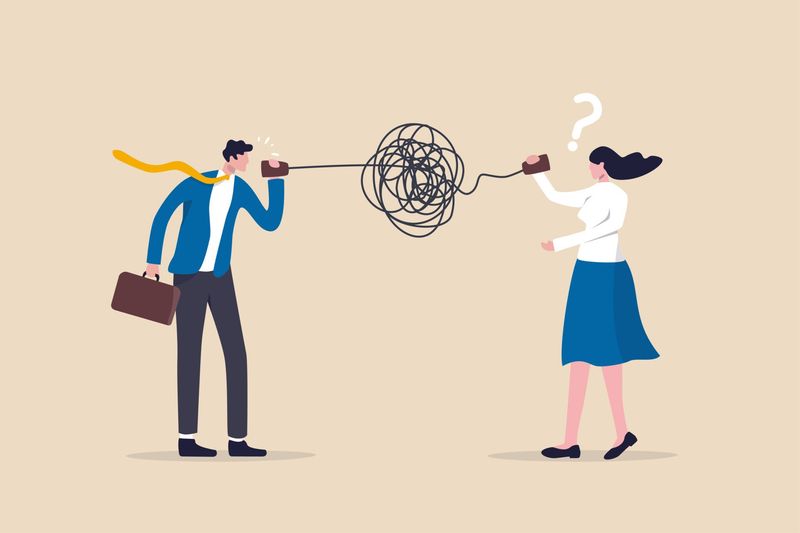18 Personality Traits That Make You Hard To Love
Navigating relationships can be complex, especially when certain personality traits make connecting with others difficult. This article explores 18 such traits, encouraging self-awareness and growth.
Understanding these habits and tendencies can help foster healthier, more fulfilling relationships without judgment or shame. Each section offers insights and potential paths to personal growth, aiding in overcoming barriers to love and connection.
1. Constant Need for Control

A constant need for control can stifle relationships, making it difficult for partners to feel appreciated. This trait often stems from a fear of uncertainty, where controlling every aspect becomes a coping mechanism. It creates an environment where spontaneity and shared decision-making are overshadowed by rigidity.
Interestingly, this behavior might have roots in past experiences where control led to perceived success. However, in relationships, it can hinder genuine connection and mutual respect. Learning to let go and trust your partner is crucial for love to thrive.
Adopting a mindset that embraces unpredictability can foster a more harmonious relationship. The challenge lies in recognizing when control is more about fear than necessity and taking steps to ease that grip.
2. Always Needing to Be Right

The incessant need to be right can be a massive barrier in relationships, often leading to unnecessary conflicts. This trait usually masks deeper insecurities, where being right equates to self-worth. It might even become a competitive game, overshadowing the partnership’s essence.
Interestingly, this behavior can stem from a high-achieving or competitive background, where being right was rewarded. However, in love, it can alienate partners, making them feel unheard or undervalued.
Finding peace in compromise is key. Embracing the idea that sometimes the relationship’s health is more important than being right can be transformative. It’s about valuing harmony over victory, which can lead to richer, more understanding connections.
3. Expecting People to Read Your Mind

Expecting others to read your mind can lead to misunderstandings and frustration. This trait is often rooted in a fear of vulnerability, where expressing needs feels too risky. Unfortunately, it creates a silent barrier that can erode trust and intimacy over time.
Surprisingly, this behavior might originate from environments where direct communication was either discouraged or deemed unnecessary. However, clarity is crucial in any relationship. Partners are not mind-readers, and the lack of communication can breed resentment.
Learning to articulate feelings and needs can transform a relationship. Embracing open dialogue fosters trust and understanding, making love more accessible. It involves the courage to be vulnerable, breaking down walls that hinder genuine connection.
4. Keeping Walls Up, Even in Safe Spaces

Building emotional walls is a defense mechanism that can make intimacy challenging. These barriers often originate from past hurts, where self-protection takes precedence over vulnerability. While they might offer a sense of safety, they keep love at a distance.
Interestingly, individuals who keep walls up may have experienced betrayal or abandonment, leading to a reluctance to fully open up. It becomes a double-edged sword, where safety is prioritized over connection.
Learning to distinguish between safe and unsafe spaces is essential. By gradually lowering these walls and allowing others in, relationships can flourish. Trust is a gradual process, but the rewards of genuine connection make it worthwhile.
5. Using Humor to Deflect Vulnerability

Humor is a wonderful trait, but when used to deflect vulnerability, it can hinder deep connections. This pattern often arises from discomfort with emotional exposure, where jokes become a shield against genuine feelings.
Interestingly, individuals who use humor this way might have learned early on that laughter can diffuse tension or avoid uncomfortable topics. However, it prevents others from truly understanding them.
Recognizing when humor serves as a defense rather than a bridge is crucial. Embracing vulnerability, even when uncomfortable, can deepen relationships. It involves a delicate balance between lightheartedness and sincerity, fostering a space where both laughter and serious conversations can coexist.
6. Shutting Down Instead of Speaking Up

Silence can be golden, but not when it replaces necessary conversations in relationships. Shutting down instead of speaking up often emerges from fear of conflict or rejection, creating distance between partners.
This trait might stem from experiences where speaking out led to negative outcomes, reinforcing the belief that silence is safer. Yet, withholding thoughts and emotions can lead to misunderstanding and resentment.
Learning to express oneself, even when difficult, is crucial for relationship growth. It’s about creating an environment where open communication is welcomed and valued. The courage to voice one’s thoughts fosters trust and prevents the build-up of unresolved issues.
7. Chasing Perfection in Yourself and Others

The pursuit of perfection can create immense pressure in relationships, often leading to disappointment. This trait is usually rooted in self-imposed standards, where nothing ever seems good enough.
Interestingly, perfectionism might develop in environments where achievements were highly celebrated, instilling a belief that worth is tied to flawlessness. However, in relationships, this mindset can stifle growth and genuine appreciation.
Embracing imperfections and valuing progress over perfection can transform interactions. Understanding that love thrives in authenticity rather than idealism fosters a more accepting and enriching relationship environment.
8. Overanalyzing Every Interaction

Overanalyzing can dampen the joy of spontaneous interactions, turning them into endless cycles of doubt and second-guessing. This habit often stems from a fear of misinterpretation or making the wrong impression.
It’s fascinating how this behavior might originate from past experiences where words were scrutinized, leading to anxiety in communication. Yet, this constant analysis can strain relationships, making them feel more like puzzles than partnerships.
Letting go of the need to dissect every interaction allows for more genuine and enjoyable connections. Trusting that intentions are good and accepting that misunderstandings are part of the process can enhance relational satisfaction.
9. Struggling to Accept Compliments

Difficulty in accepting compliments can stem from self-esteem issues, where praise feels undeserved or insincere. This trait often leads to dismissive responses, inadvertently signaling to others that their positive words hold little value.
Surprisingly, this discomfort might originate from environments where modesty was emphasized, or compliments were rare, making praise feel foreign or overwhelming. However, consistently rejecting compliments can create barriers in relationships.
Learning to graciously accept compliments fosters positive interactions and reinforces bonds. It’s about understanding that accepting praise doesn’t equate to arrogance, but rather, it allows for a balanced perception of oneself and encourages mutual appreciation.
10. Avoiding Apologies at All Costs

Avoiding apologies can create rifts in relationships, where pride overshadows the need for reconciliation. This trait often stems from a fear of vulnerability, where admitting faults feels akin to defeat.
Interestingly, this behavior might develop from environments where apologies were seen as weaknesses, instilling a belief that strength lies in infallibility. However, in relationships, apologies pave the way for healing and growth.
Learning to apologize sincerely fosters an environment of understanding and respect. It reinforces the idea that relationships are about growth and learning, rather than perfection. Genuine apologies can transform misunderstandings into opportunities for deeper connection.
11. Needing Validation Before You Act

Constantly seeking validation before making decisions can hinder personal growth and strain relationships. This trait is rooted in self-doubt, where external approval becomes a substitute for self-assurance.
Interestingly, individuals who exhibit this trait might come from backgrounds where validation was linked to acceptance, creating a cycle of dependency. However, relying on others for validation can undermine one’s autonomy.
Cultivating self-confidence and trusting one’s judgment is vital for both personal and relational health. It involves recognizing that while feedback is valuable, the ultimate decision lies within oneself. This shift empowers more authentic and independent interactions.
12. Holding on to Grudges

Holding onto grudges can be likened to carrying unnecessary baggage, weighing down relationships with past grievances. This trait often stems from a fear of vulnerability, where forgiving feels like losing the upper hand.
Surprisingly, this behavior might originate from experiences where letting go was equated with denial of wrongdoing or weakness. However, grudges can obstruct the path to healing and connection.
Learning to forgive and release past hurts is essential for enduring relationships. It’s about understanding that forgiveness is not about condoning behavior but freeing oneself from the burden of resentment. This approach nurtures a space for growth and mutual respect.
13. Making Jokes at Other People’s Expense

Joking at another’s expense can create rifts in relationships, where laughter masks underlying hurt. This trait often stems from insecurity, where making others the butt of jokes deflects attention from one’s own vulnerabilities.
Interestingly, those who indulge in this behavior might have learned that humor wins social approval, even at the cost of others’ feelings. However, this can erode trust and mutual respect.
Recognizing the impact of words and opting for humor that uplifts rather than undermines is crucial. It’s about creating an environment where everyone feels valued and respected. Humor should bridge, not divide, fostering a more compassionate and connected relationship.
14. Assuming the Worst in Conflict

Assuming the worst during conflicts can escalate issues, turning minor disagreements into major rifts. This trait often arises from past experiences where conflict led to negative outcomes, instilling a defensive mindset.
Interestingly, this behavior might develop from environments where open dialogue was rare, and assumptions filled the void. However, it prevents resolution and understanding.
Adopting a more optimistic and open-minded approach to conflicts can transform interactions. It’s about giving the benefit of the doubt and seeking to understand before concluding. This perspective fosters healthier communication and deeper connections, turning conflicts into opportunities for growth.
15. Interrupting as a Defense Mechanism

Interrupting can be a defensive mechanism, where cutting others off protects oneself from perceived threats in conversation. This trait often stems from insecurity, where dominating the dialogue feels safer than being vulnerable.
Interestingly, individuals who interrupt might have learned this behavior in competitive environments where being heard required assertiveness. However, it can prevent meaningful exchanges and alienate partners.
Practicing active listening and allowing others to express themselves fully is crucial. It’s about valuing different perspectives and creating a space where dialogue flows naturally. This shift promotes mutual respect and understanding, enhancing relationship dynamics.
16. Being Overly Critical (Even of Yourself)

Being overly critical, whether towards others or oneself, can stifle relationships and personal growth. This trait often originates from high standards imposed by oneself or external influences.
Surprisingly, those who exhibit this behavior might come from backgrounds where criticism was a form of motivation or expression of care. However, it can lead to resentment and a lack of appreciation for positive attributes.
Shifting towards a more balanced and appreciative perspective is key. It involves recognizing strengths alongside areas for improvement, fostering a more supportive and nurturing environment. This approach encourages growth and strengthens relational bonds.
17. Mistaking Independence for Isolation

Mistaking independence for isolation can lead to loneliness, where self-reliance becomes a barrier to connection. This trait often emerges from a fear of dependency, where autonomy is prioritized above all else.
Interestingly, this behavior might develop from experiences that celebrated independence, inadvertently discouraging collaboration. However, in relationships, it can create emotional distance.
Understanding that true independence includes the ability to connect and collaborate enhances relationship dynamics. It’s about finding a balance, where self-sufficiency coexists with meaningful connections. This shift nurtures a sense of belonging and shared experiences.
18. Letting Fear of Rejection Drive the Relationship

Fear of rejection can dictate relationship dynamics, often leading to self-sabotage. This trait usually stems from past experiences where vulnerability led to heartache, making emotional risk seem daunting.
Interestingly, individuals driven by this fear might have encountered environments where acceptance was conditional, reinforcing their apprehension. However, allowing fear to dictate actions can prevent genuine connections.
Building resilience and embracing vulnerability are key to overcoming this barrier. It’s about understanding that rejection is not a reflection of worth, but part of the human experience. This perspective encourages more open and fulfilling relationships, where fear no longer holds sway.







